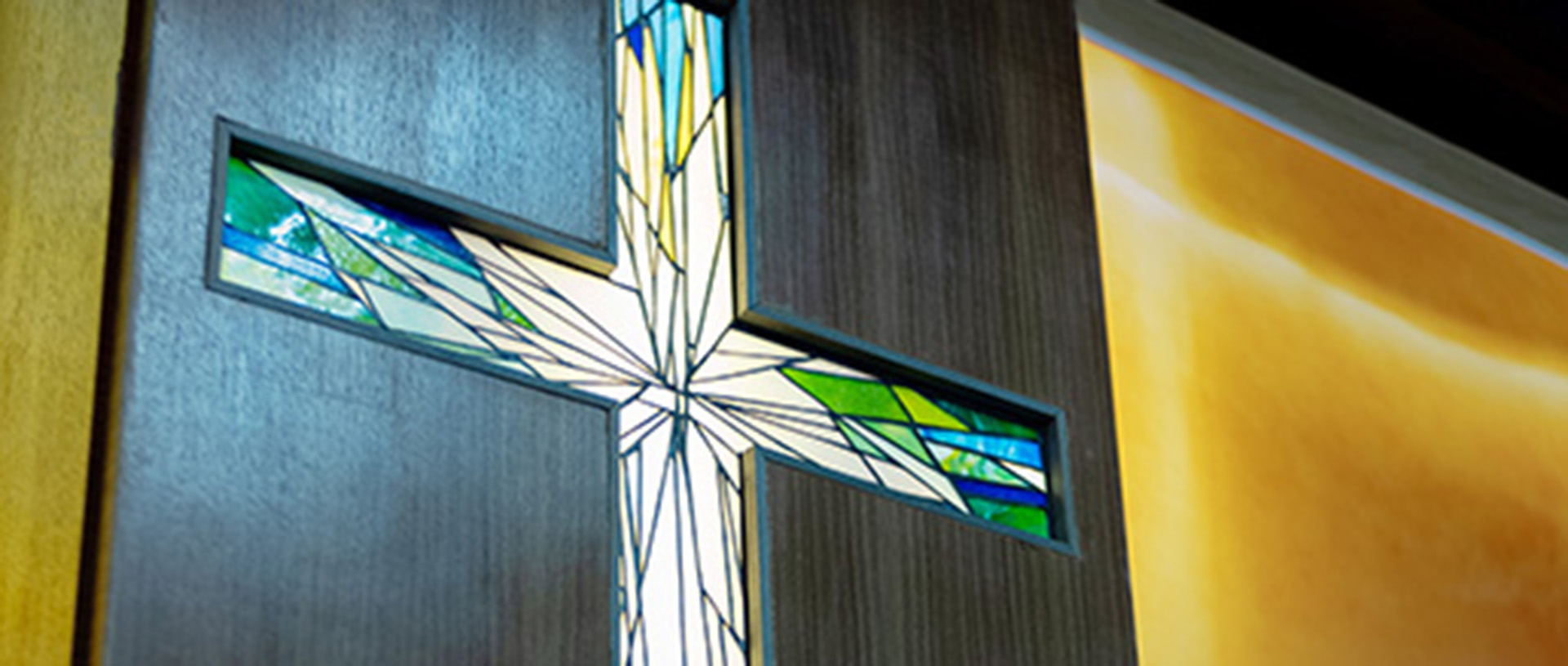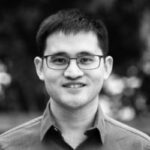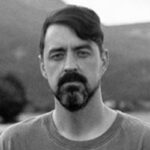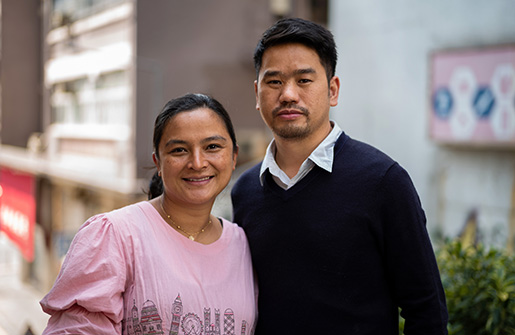
On a Sunday morning in 2017, around 70 people gathered to worship and celebrate the launch of Hope for All Church. Planted in the Yau Ma Tei neighborhood in Hong Kong’s Kowloon district, Hope for All had been many years in the making, as husband-and-wife pastors Ebson Simick (MDiv ’16) and Tryfina Phipon (MDiv ’16) had long envisioned starting a church in this part of the city. “We felt really good,” Ebson says. “It was incredible when people gathered to support us.” But when attendance dropped into the single digits in the week that followed the launch and the weeks after that, Ebson and Tryfina were hit with the reality every church planter faces: it’s difficult work starting a church.
Hope for All’s mission is summed up in its name. The church yearns to be “an inclusive body of Jesus Christ that is a living manifestation of the kingdom of God.” Ebson and Tryfina explain how they’ve specifically sought to minister in this particular area of Hong Kong. Many of the churches in the city cater to the highly educated or to those more socioeconomically well-off; there are also many other churches that tend to draw in homogenous communities. “But there was a middle that was missing,” Ebson says, “those in between the cultures, especially younger generations, coming from different countries, who’ve settled here, who work here. They have different difficulties, different challenges, and at the same time many strengths as well. This entire generation gets missed.” Many of these people live in the densely populated and diverse Yau Ma Tei neighborhood.
Both Ebson and Tryfina had worked among this community for many years. Each of them had come to Hong Kong separately as missionaries from India and served in different organizations. As Ebson’s work with Inner City Ministries and Tryfina’s with Youth with a Mission intersected more and more, and after they were eventually married (“a story for another time,” they say with a smile), they grew a shared recognition of the deeper needs among the people they served. They dreamed of a more holistic, long-term ministry of discipleship that would allow them to walk alongside people in all the areas of life. They imagined a church as the fitting way to do this, but neither felt adequately equipped for that work. So, at the encouragement of mentors and with the blessing of their mother church, they went to Fuller to be trained for three years before returning to Hong Kong to plant Hope for All.

Jerome Blanco is editor in chief of FULLER magazine and FULLER studio.

Ricky Nyhoff is an American director based in Hong Kong.
On a Sunday morning in 2017, around 70 people gathered to worship and celebrate the launch of Hope for All Church. Planted in the Yau Ma Tei neighborhood in Hong Kong’s Kowloon district, Hope for All had been many years in the making, as husband-and-wife pastors Ebson Simick (MDiv ’16) and Tryfina Phipon (MDiv ’16) had long envisioned starting a church in this part of the city. “We felt really good,” Ebson says. “It was incredible when people gathered to support us.” But when attendance dropped into the single digits in the week that followed the launch and the weeks after that, Ebson and Tryfina were hit with the reality every church planter faces: it’s difficult work starting a church.
Hope for All’s mission is summed up in its name. The church yearns to be “an inclusive body of Jesus Christ that is a living manifestation of the kingdom of God.” Ebson and Tryfina explain how they’ve specifically sought to minister in this particular area of Hong Kong. Many of the churches in the city cater to the highly educated or to those more socioeconomically well-off; there are also many other churches that tend to draw in homogenous communities. “But there was a middle that was missing,” Ebson says, “those in between the cultures, especially younger generations, coming from different countries, who’ve settled here, who work here. They have different difficulties, different challenges, and at the same time many strengths as well. This entire generation gets missed.” Many of these people live in the densely populated and diverse Yau Ma Tei neighborhood.
Both Ebson and Tryfina had worked among this community for many years. Each of them had come to Hong Kong separately as missionaries from India and served in different organizations. As Ebson’s work with Inner City Ministries and Tryfina’s with Youth with a Mission intersected more and more, and after they were eventually married (“a story for another time,” they say with a smile), they grew a shared recognition of the deeper needs among the people they served. They dreamed of a more holistic, long-term ministry of discipleship that would allow them to walk alongside people in all the areas of life. They imagined a church as the fitting way to do this, but neither felt adequately equipped for that work. So, at the encouragement of mentors and with the blessing of their mother church, they went to Fuller to be trained for three years before returning to Hong Kong to plant Hope for All.
Jerome Blanco is editor in chief of FULLER magazine and FULLER studio.
Ricky Nyhoff is an American director based in Hong Kong.


The church has grown in the time since its launch, while seeing its fair share of ups and downs. As pastors, Ebson and Tryfina led the church through years of pandemic and Hong Kong’s political tumult, on top of the regular challenges of waning attendance and burnout that come with a budding plant. (They share how, on some of those early Sundays, they and their children were the only ones to show up.) Amidst it all, God has been present and faithful.
Reflecting on the way that Hope for All has grown over these years, the couple talks about the importance of relationships and community. And how a key aspect of their ministry is recognizing that nobody—from those who minister to those who are ministered to—is ever an individual separate from the people around them.
A distinct ministry approach of theirs has been to reach out not only to individuals but to individuals’ families as a whole. Tryfina says that if a church is to help any single person holistically and to disciple that person in every part of life, it’s necessary for a family or other loved ones to be part of that formation. Ebson offers an example, saying, “If someone is dealing with an addiction issue, a drug issue, it isn’t just the issue of that one person. It’s the issue of the whole family. So, we actually have to reach out to the whole family to help them.” Incidentally, Ebson says this approach has shaped the way their church has grown: “Whole families were coming to the Lord!”
This idea of togetherness and walking alongside one another is a central value for Ebson and Tryfina. And they hope for the church to be a place “where people can grow together as a family.” This is as true for them—the church’s pastors—as it is for anybody else. Planting and leading a church is an impossible task without the relationships and communities who help to sustain them.


In many ways, they say, it starts with one another. Ebson and Tryfina say that being each other’s support system is what carries them through the regular challenges of ministry. Ebson says, especially of those early days, that “the vision of church planting sounded so good, but when we had to do it with our hands, every day, and deal with all kinds of issues, we often felt like giving up. There are days when ‘the vision’ sounds ridiculous, and it doesn’t work out in reality. But through those times, we could rely on God and on each other.” He says there was so much value in simply being able to ask each other, “Am I on the right track?”
“It’s a blessing to work together,” Tryfina says. “There were many times when Ebson had to pick me up and remind me, ‘you are overreacting.’ He had to remind me, and I had to remind him. And as husband and wife, we can be utterly truthful with one another but with so much care and love.”
Other relationships are sustaining and formative in their own ways too. Ebson shares how their children’s budding faith is a constant inspiration to them, offering gifts of insight into God from young eyes. Tryfina says the mentors and pastors who’ve walked with them from the beginning have made and continue to make an impact on them. She says that for the faithful work of leading a church, “You have to be prayed for. You have to be mentored. You have to have hands laid on you. You have to be released for what God has for you.” They both also talk about the core leaders of Hope for All, who spend hours in prayer with them, who take ownership of different areas of the ministry, and who help carry the load of logistical responsibilities that keep things running. Tryfina adds that it’s important for newcomers to the church to also be given the opportunities to grow into the leadership roles God calls them to.
At Hope for All, all is the point. And the couple have witnessed God do amazing things as they’ve fostered connections and relationships with those inside and outside the
church’s walls.
There’s a story Ebson and Tryfina like to share about seeing God’s faithfulness at work in this way: In 2017, Harman attended Hope for All’s inauguration service. He wasn’t a Christian, but his Christian wife had asked him to come along. He didn’t visit again, but years later, Ebson received a phone call. Harman, a restaurant owner, had gone through a long season of depression over the years of pandemic and protest in Hong Kong. Ebson says, “He began to search for the truth, and somebody had given him a Bible at his restaurant, so he began to read.” When Harman decided he wanted to come to a church, he thought of Hope for All—because Ebson and another church leader had paid him a single follow-up visit after that initial service, and had left a box of strawberries as a gift. Soon, Harman came to Christ. Today, he leads a men’s fellowship at the church. The invitation from his wife, the gift from a coworker, the kindness of church leaders, the spurring of the Spirit—many relationships brought him into this new family. And Harman’s is only one story of the many in their church.
Recently, Hope for All celebrated its fifth anniversary. Five years and many Sundays since that first worship service, and five years of witnessing God at work. With about 60 people in attendance week by week, including a growing children’s program, they’re even searching for a larger space. “We’ve had valleys,” Ebson says, “but God is good, and God is faithful.”
As the church enters a new season, Tryfina says God has placed on their heart a particular image from Isaiah 54: “Enlarge the place of your tent, stretch your tent curtains wide, do not hold back; lengthen your cords, strengthen your stakes.” It’s a vision less about growing in numbers and more about welcoming people in, more and more—about becoming a church sharing the good news for everyone to everyone. Ebson says, “I want to make this a place of hope and healing for people, especially those who’ve been battling in their lives—physical, emotional, economic, spiritual battles. We’re focusing on healing and hope. That’s the vision God is giving us.”
As pastors, as a church, and with the Spirit, they are setting about widening their tent. They’re stretching curtains, lengthening cords, strengthening stakes—creating a community of hope for all in their corner of Kowloon.
Miyoung Yoon Hammer, co-guest editor, introduces this issue’s theme of “family” by drawing on her own family’s experience of finding a home in a wider church community.